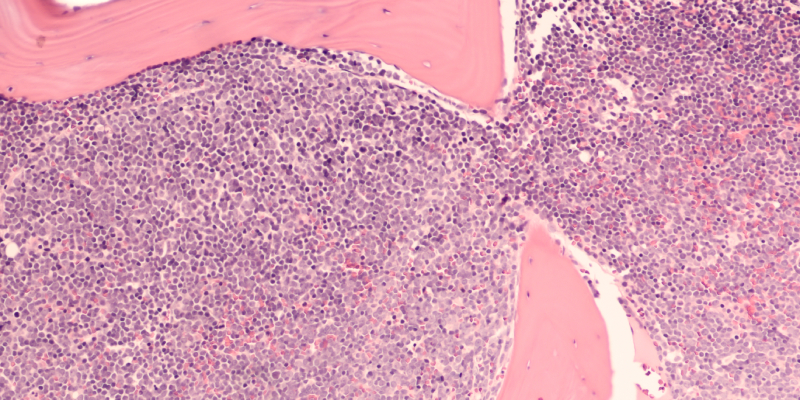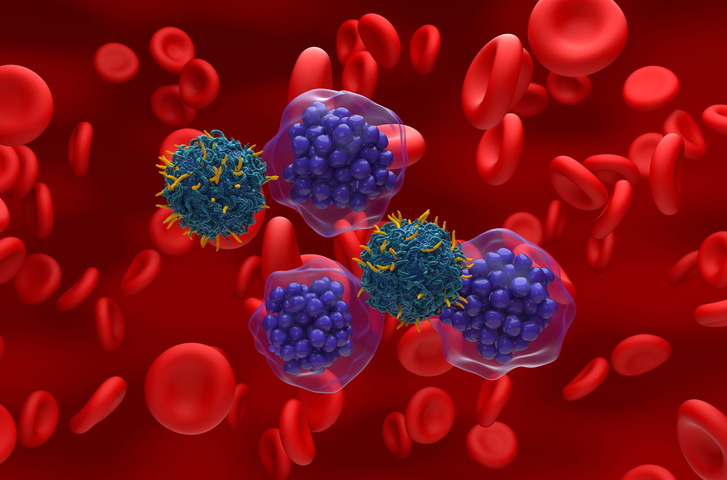
A retrospective analysis of patients with diffuse large B-cell lymphoma (DLBCL) found no difference in central nervous system (CNS) relapse rates following intercalated versus post-therapy administration of prophylactic high-dose methotrexate, including for high-risk subgroups.
The multicenter, international study, led by Matthew R. Wilson, MD, of the Beatson West of Scotland Cancer Centre in Glasgow, United Kingdom, was published in Blood.
The study compared 1,384 patients with DLBCL receiving high-dose methotrexate CNS prophylaxis either intercalated (n=749) or at the end of R-CHOP (rituximab, cyclophosphamide, hydroxydaunorubicin, oncovin, and prednisone) or R-CHOP-like therapy (n=635).
Among the 78 CNS relapses that occurred (three-year rate, 5.7%), there was no difference between intercalated high-dose methotrexate and end of therapy treatment (5.7% vs 5.8%; P=.98; three-year difference, 0.04%). Conclusions were unchanged on adjusting for baseline prognostic factors or on six-month landmark analysis (n=1,253). In patients with a high CNS International Prognostic Index (n=600), the three-year CNS relapse rate was 9.1%, with no difference between intercalated high-dose methotrexate and end-of-therapy administration as CNS prophylaxis for DLBCL.
“In summary, we found no evidence that [end of therapy] delivery increases CNS relapse risk versus [intercalated high-dose methotrexate],” the authors wrote.
Furthermore, rates of CNS relapse in the high-dose methotrexate-treated cohort were similar to comparable cohorts receiving infrequent CNS prophylaxis for DLBCL, the investigators noted.
On the other hand, R-CHOP delays of seven days or longer were significantly increased with intercalated high-dose methotrexate compared to end of therapy, with 308 of 1,573 (19.6%) intercalated high-dose methotrexate treatments resulting in a delay to subsequent R-CHOP (median, eight days). Increased risk of delay occurred in older patients when delivery was later than day 10 in the R-CHOP cycle.
“End of treatment high-dose methotrexate did not increase risk of CNS relapse compared with intercalated delivery and caused fewer delays to R-CHOP therapy,” the authors wrote. “If high-dose methotrexate is still considered for certain high-risk patients, delivery could be deferred until R-CHOP completion.”
Reference
Wilson MR, Eyre TA, Kirkwood AA, et al. Timing of high-dose methotrexate CNS prophylaxis in DLBCL: a multicenter international analysis of 1384 patients. Blood. 2022;139(16):2499-2511.






 © 2025 Mashup Media, LLC, a Formedics Property. All Rights Reserved.
© 2025 Mashup Media, LLC, a Formedics Property. All Rights Reserved.